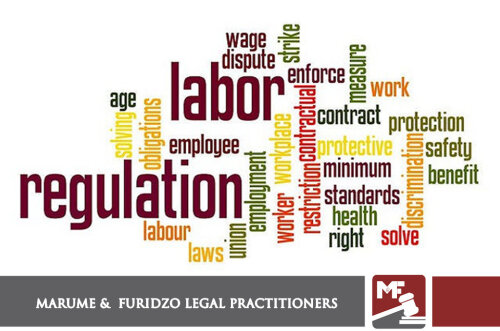Best Job Discrimination Lawyers in Harare
Share your needs with us, get contacted by law firms.
Free. Takes 2 min.
List of the best lawyers in Harare, Zimbabwe
About Job Discrimination Law in Harare, Zimbabwe
Job discrimination in Harare, Zimbabwe, like in many other parts of the world, refers to the unfair treatment of an individual in the workplace based on personal characteristics unrelated to job performance. This can include discrimination based on race, gender, age, religion, disability, or any other improper basis. The laws in Zimbabwe are designed to protect employees from such discriminatory practices, ensuring a fair and equitable working environment. Job discrimination can occur at any stage of employment, from hiring and promotions to dismissal. Being aware of and understanding these laws is crucial for both employers and employees to foster a fair workplace.
Why You May Need a Lawyer
There are various scenarios where you may require legal assistance with job discrimination in Harare, Zimbabwe. These can include:
- Unfair Dismissal: Being terminated from your job for discriminatory reasons.
- Retaliation: Facing negative consequences, such as demotion or harassment, for reporting discrimination.
- Harassment: Enduring a hostile work environment because of discriminatory practices.
- Pay Inequality: Receiving unequal pay for equal work due to discriminatory factors.
- Promotion Denial: Being overlooked for promotions or advancements for discriminatory reasons.
An experienced lawyer can help you understand your rights and the legal options available, potentially negotiate settlements, or represent you in legal proceedings.
Local Laws Overview
In Zimbabwe, the primary laws that address job discrimination include the Labour Act, the Disabled Persons Act, and the Constitution of Zimbabwe, which provide a framework for the protection against unfair labor practices. The Labour Act prohibits any form of discrimination in the workplace and establishes structures for resolving disputes. The Constitution guarantees the right to equal protection and benefit of the law without discrimination and provides for the right to fair labor practices. Additionally, various statutory instruments and guidelines support these laws, further outlining employer and employee obligations and rights.
Frequently Asked Questions
What constitutes job discrimination in Harare?
Job discrimination involves any unfair treatment or adverse action against an employee based on personal characteristics like race, gender, age, or disability, rather than job performance.
How can I prove job discrimination?
Evidence is crucial. This can include performance records, emails or messages, witness accounts, and any documentation of company policies providing inconsistent treatment.
Is there a time limit to file a discrimination claim?
Yes, typically there are time limits for filing discrimination claims, which can vary for different types of claims. It is important to seek legal advice promptly to ensure your claim is filed in time.
What are possible outcomes of a discrimination claim?
Outcomes can range from financial compensation, reinstatement of job positions, policy changes in the workplace, or legal reforms depending on the case specifics.
Can I be fired for filing a discrimination claim?
It is illegal for employers to retaliate against employees for filing discrimination claims. If you face retaliation, this could form the basis of another legal claim.
Do workplace discrimination laws cover harassment?
Yes, harassment is a form of discrimination and laws covering job discrimination also address various forms of workplace harassment.
Are there exceptions to discrimination laws?
Yes, in certain cases, like where a specific characteristic is a legitimate requirement for a job, discrimination may be permitted. It is best to consult with a lawyer for clarity on exceptions.
What should I do if I suspect discrimination?
Document incidents meticulously, report to your HR department if available, and seek legal advice to understand your rights and possible actions.
Can I handle a job discrimination case without a lawyer?
While technically you can, legal systems can be complex, and a lawyer can provide invaluable expertise to navigate them and improve case outcomes.
Are legal consultations confidential?
Yes, legal consultations are confidential, allowing you to discuss your situation openly with a lawyer without fear of repercussions.
Additional Resources
To assist further, the following resources can be helpful:
- Zimbabwe Human Rights Commission: Provides advocacy and support for human rights, including workplace discrimination.
- The Ministry of Public Service, Labour, and Social Welfare: Implements policies related to labor and welfare issues.
- Zimbabwe Congress of Trade Unions (ZCTU): Offers support and guidance for workers facing discrimination.
- Legal Resources Foundation - Zimbabwe: Provides legal support and resources for individuals facing legal issues, including discrimination.
Next Steps
If you suspect job discrimination or need legal advice, consider these steps:
- Document Everything: Start by documenting any incidents of discrimination as thoroughly as possible.
- Seek Advice: Contact a lawyer specializing in employment law to understand your legal rights and options.
- File a Complaint: If advisable, file a formal complaint with your employer or relevant legal authority.
- Follow Up: Keep track of all communications and developments related to your case.
- Consider Mediation: Explore mediation as a way to resolve the issue out of court if applicable.
Each situation is unique, and swift action can lead to more effective outcomes. Consulting with legal professionals helps navigate these processes efficiently.
Lawzana helps you find the best lawyers and law firms in Harare through a curated and pre-screened list of qualified legal professionals. Our platform offers rankings and detailed profiles of attorneys and law firms, allowing you to compare based on practice areas, including Job Discrimination, experience, and client feedback.
Each profile includes a description of the firm's areas of practice, client reviews, team members and partners, year of establishment, spoken languages, office locations, contact information, social media presence, and any published articles or resources. Most firms on our platform speak English and are experienced in both local and international legal matters.
Get a quote from top-rated law firms in Harare, Zimbabwe — quickly, securely, and without unnecessary hassle.
Disclaimer:
The information provided on this page is for general informational purposes only and does not constitute legal advice. While we strive to ensure the accuracy and relevance of the content, legal information may change over time, and interpretations of the law can vary. You should always consult with a qualified legal professional for advice specific to your situation.
We disclaim all liability for actions taken or not taken based on the content of this page. If you believe any information is incorrect or outdated, please contact us, and we will review and update it where appropriate.















